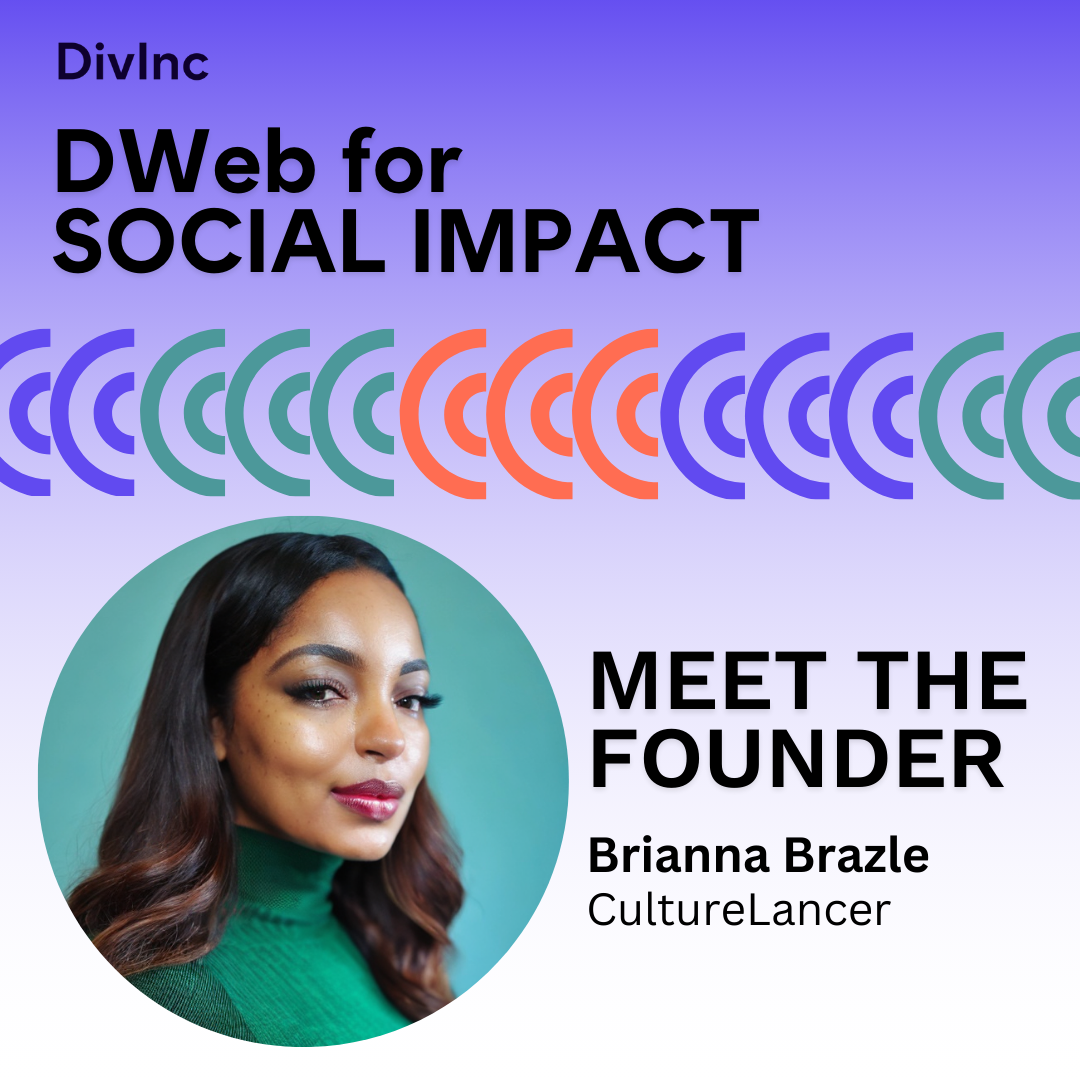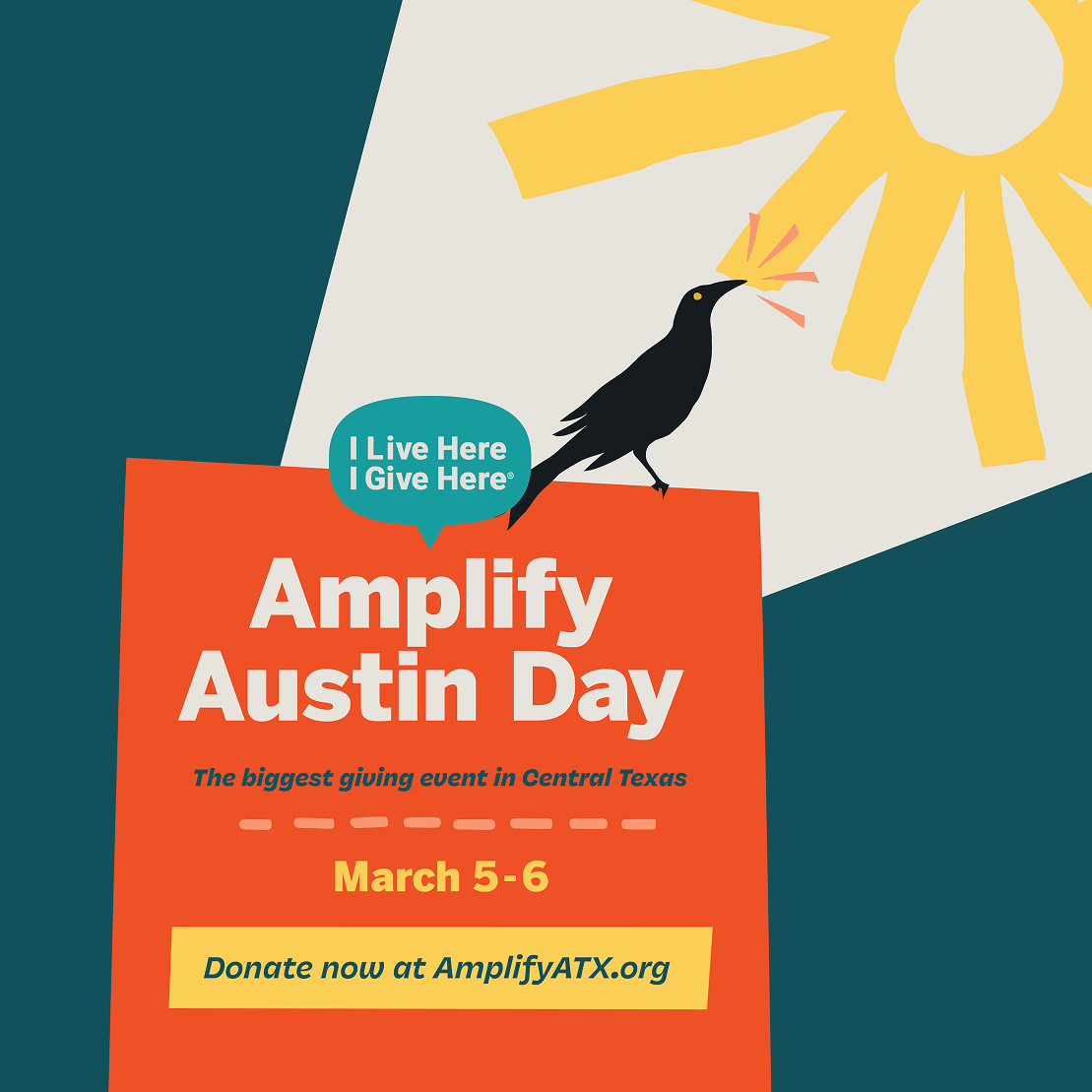by Lara Adekeye
Our Spring 2023 Social Impact Accelerator is quickly wrapping up, and we’re excited about our upcoming Demo Day, a celebration and showcase of the founders’ completion of our accelerator program!
Next up in our Founder Spotlight series is Brianna Brazle, founder of CultureLancer. We sat down with Brianna to discuss her founder journey and key takeaways from DivInc’s Social Impact accelerator program. Read highlights from our conversation below, or watch the full interview on YouTube.
Brianna, tell us about CultureLancer and the problem it solves for students and companies?
CultureLancer is an HR tech platform that is working to help every college student graduate with at least two years of industry-based experience. We do that through our AI-powered career acceleration platform. We connect students with small businesses to work on real projects focused on data analytics. So simultaneously, we're also helping small businesses grow and make data-driven decisions toward their growth.
There are two issues that we're solving. We're solving the problem for the recent graduate or the soon-to-be graduate, making sure that they're prepared and marketable when they go into industry, but also solving the issue for the businesses.
For students, it's an interesting time. They are in the beginning of the self-discovery phase where they are trying things out, or maybe they’re afraid to try things out. So we want to make some of that easier for a student. It's okay if they don’t know all the answers because we don't expect them to, but CultureLancer wants to give them a space to explore and do it in a meaningful way. More than likely, students already have some skills and talent, especially in 2023, where technology is rampant, and those are transferable skills. So we want to understand where a student's baseline is, how we can grow from that baseline, and whether it relates to their interests and career goals. So, we’re creating a platform that allows a student to do that in a meaningful and intentional way.
We also help businesses understand where a good starting point is based on their goal and then do it in a way that is project-based and tied to KPI. So data is important, it’s pivotal to making the right decisions that are growth-fueled and related. So we want to always stick to something that's data-driven, and develop strategic projects around that so that it aligns with whatever the business is trying to get to in the next year or the next three months. We want to align it to that and then deploy the talent.
What is the experience like on the ground for companies that want to bring on new talent, and for students taking on projects through CultureLancer?
First I think it's important to level-set because our target is those who are currently enrolled in school, so level-set in terms of asking where you see an individual like this fitting in a company. That is because we want to offer something a little bit more intensive than an internship. Internships are great, but they also are not super reflective of what really happens in the world. So first is understanding what are the companies’ immediate needs, because we operate on projects, not necessarily internships, because projects can be extended, can be short term, and can be very solution-based. So understanding what the company needs, is it that short-term project where you just want to test out someone's skill, we can create opportunities like that. But maybe it's something a little bit more expansive like you have a UX team and you don't have the funds to create a role for a UX researcher. Then we can facilitate support and provide talent to support that need. So it's case by case, we want to know what the need is and design projects around that need.
Before DivInc we satisfied needs in four areas: business development, business operations, marketing and data analytics and the skills varied, but they fell under those umbrellas. Since being in DivInc, we've zoned in on what our focus is. We're going to be focusing right now, over the next year at least, on data analytics. So that looks like analysis, research methods, and learning some software. We're trying to upskill students to be adaptive, regardless of the technology that they're on. But then also soft skills. Soft skills are a huge thing that we don't want to forget because colleges pay a lot of attention and put a lot of resources towards soft skill development and industry recognizes that emerging talent or early talent lacks the soft skills to be really adaptive in a workforce environment. So, we cultivate soft skills development and the obtaining of hard skills.
What point were you at in your CulutreLancer journey where you felt it was the right time for an accelerator, and what led you to choose DivInc?
I still feel like I'm a baby when it comes to this world. I'm about three years fresh on this knowledge that accelerators even existed. However, early on in my journey, I got the courage to dive headfirst into this through mentorship. Mentors suggested different paths for me to go on as a way of getting capital and expanding my network, and accelerators are a quick way to do that. Beyond that, I'm a learner by nature. I love to be in environments where there are opportunities for me to learn in a structured way, and accelerators gave me that opportunity.
With DivInc in particular, I was at an event at The Ion and met an alum of DivInc. We were talking a bit about what she was building and she was in the DivInc program and was talking about how great it was. Then it just so happened that the Social Impact accelerator applications came up a month or two later. So I applied and I fell in love with the mission. What I really liked is that DivInc lives up to its promise of meeting us where we are and helping us grow from there. So, I'm very grateful for this decision. I'm very grateful for the acceptance. I'm lost for words, I couldn't talk enough about how great DivInc has been and I'm sad that we're ending.
As you’ve been progressing through the 12 weeks of the program, have you experienced any big “aha moments” or pivots/surprises?
One was the focus on data analytics that came out of this program. I didn't realize the position that we were in as a company already. I had an idea, but I didn't know the exact numbers so that was a huge eye-opener, because I already had over 80 businesses signed up. We launched in February of this year, and the focus of the launch was to validate our theory and our thesis behind what we were offering to the world, it wasn't really focused on revenue, which I know we can argue about whether that was a good or bad thing. We generated a little bit of revenue here and there, but it wasn't our main focus. But organically, we were able to sign up 80 paying customers. So we know that there's an opportunity for us to quickly tap into our market that we already have. That was an eye-opener that I discovered during DivInc. We were also introduced to new staff, which has been great. I'm looking forward to the road ahead because we have some big plans, and I'm excited about it.
Excited to talk more about those big plans shortly! I'd love to hear about any personal growth that you've had as a part of the accelerator or as part of your overall founder journey.
Social impact as a foundation of a company is different. The week before week one of DivInc I was talking to someone and they said that we start businesses out of trauma. That particularly relates to social impact because the point of social impact is that we are committed and connected to the mission of whatever we're building because it has such a profound impact on society. More than likely we were directly impacted, even if it was vicariously, we were so connected to it empathetically that we wanted to solve the issue. That in itself shows that you were traumatically affected and that it made such an imprint on your life, that you feel the need to do something about it.
But the problem is, and this is what DivInc brought full circle for me, is that you can fuel your journey with this traumatic imprint that happened, but you cannot make business decisions based off of that because you are not your customer and that can hinder your growth.
For me, that is something that has come up a lot in our time together during the different sessions. The question of, how am I hindering my growth because I'm feeding that internal child and I'm not doing what I need to do for the society at large? So it's been great and very reflective. It's okay to start from those sad places, but you can't stay there. It will break your business at the end of the day, and I am legacy building.
Wow, and even before Demo Day there are already ways for people to get involved with CultureLancer and show their support! Can you share with us about what you have going on that people can click into?
We launched a crowdfunding campaign with IFundWomen and we're looking to support 20 small businesses. For those people who maybe can't afford services, we want to support 20 of them going into the new year to start a strong foundation for their business and do it in a way that we can still support our students. On our platform, every student is compensated for the work that they do. That's built into our plan. So anything helps, you share it with your community and get the word out there to help us reach our goal. Our goal is to raise $7,000 by January 5th. There's a link to our link tree, where you can find other resources like how to get in contact with me, find out about our website, and you can follow us on socials.
DivInc’s DWeb for Social Impact Demo Day is on December 7th. For those not in Houston, you can join us on the live stream on all of our social media channels. Demo Day is an amazing opportunity to meet all of our Social Impact Accelerator cohort members and watch them pitch live!

.svg)





